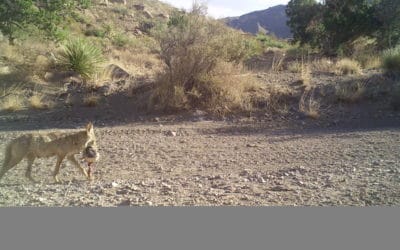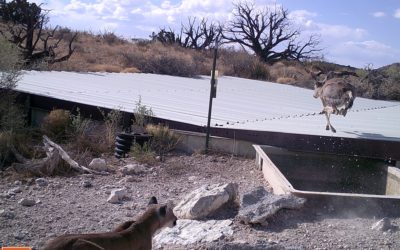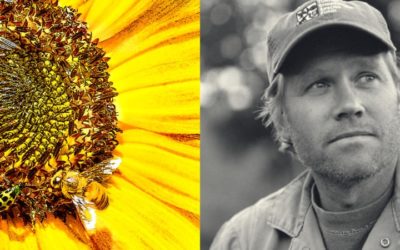OUR STORY
OUR STORY
Every year tens of thousands of species and functional ecosystems, fine-tuned by time and place, disappear.
If these trends continue, the world will become a dismal place indeed, with silent springs and little left to excite the senses except the weeds. Without doubt, the extinction crisis looms as one of humanity’s most pressing problems.
In response to this crisis, Ted Turner, his family, and Mike Phillips established the Turner Endangered Species Fund (TESF) and Turner Biodiversity Divisions (TBD) in June 1997. TESF focuses on species protected under federal and state endangered species laws, whereas TBD considers species that are at slightly less risk. These companion efforts are dedicated to saving biological diversity by ensuring the persistence of imperiled species and their habitats with an emphasis on private land.
We work closely with our partner organizations, Turner Enterprises, Inc. and the Turner Foundation, and invite collaboration with state and federal agencies, universities, and other private organizations.
Whether managing an extant population or restoring an extirpated one, our goal is population persistence with little or no human intervention. We believe that persistent populations of native species are indicative of a healthy landscape and a high degree of ecosystem integrity.
The problems involved in private stewardship are complex and effective solutions require broad-based sociopolitical, biological, geographical, and fiscal considerations. Though our projects may be controversial, slow to succeed or fraught with uncertainty, we intend to stand as a real solution to the extinction crisis.
NEWSROOM
A coyote carries dinner.
Resourceful coyote carries its catfish catch home. The catfish was likely caught in Elephant Butte reservoir located approximately three miles from where the picture was taken. Photo taken by Turner Biological Team, Dan Martin and Hunter Prude.
Mountain lion ambushes deer at a rain catchment.
In the Fra Cristobal Mountains on the Armendaris Ranch, New Mexico a Mountain a lion is seen on camera ambushing a deer at a rain catchment. Although water sources tend to aggregate many wildlife species during hot and dry season in the Chihuahuan Desert, mountain...
Mike Phillips on MAHB dialogue series
Geoffrey Holland interviews Mike Phillips for the Millennium Alliance for Humanity and the Biosphere (MAHB) dialogue series. https://mahb.stanford.edu/blog/mahb-dialogue-with-mike-phillips-executive-director-of-the-turner-endangered-species-fund/
Every year tens of thousands of species and functional ecosystems, fine-tuned by time and place, disappear.
If these trends continue, the world will become a dismal place indeed, with silent springs and little left to excite the senses except the weeds. Without doubt, the extinction crisis looms as one of humanity’s most pressing problems.
In response to this crisis, Ted Turner, his family, and Mike Phillips established the Turner Endangered Species Fund (TESF) and Turner Biodiversity Divisions (TBD) in June 1997. TESF focuses on species protected under federal and state endangered species laws, whereas TBD considers species that are at slightly less risk. These companion efforts are dedicated to saving biological diversity by ensuring the persistence of imperiled species and their habitats with an emphasis on private land.
We work closely with our partner organizations, Turner Enterprises, Inc. and the Turner Foundation, and invite collaboration with state and federal agencies, universities, and other private organizations.
Whether managing an extant population or restoring an extirpated one, our goal is population persistence with little or no human intervention. We believe that persistent populations of native species are indicative of a healthy landscape and a high degree of ecosystem integrity.
The problems involved in private stewardship are complex and effective solutions require broad-based sociopolitical, biological, geographical, and fiscal considerations. Though our projects may be controversial, slow to succeed or fraught with uncertainty, we intend to stand as a real solution to the extinction crisis.



